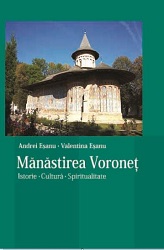
Studies on history of Voronet monastery
Studii privind istoria manastirii Voronet
Keywords: Monasteries;Moldova;
More...
Keywords: Monasteries;Moldova;
More...
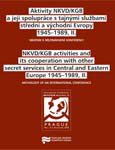
Keywords: Conference; NKVD; KGB; Secret Service; Central and East Europe; Soviet Union; 20th century; security;
The activity of Soviet security units, particularly State Security known throughout the world under the acronym of KGB, remains one of the most important subjects for 20th century research in Central and Eastern Europe. The functioning and operation of this apparatus, which surpassed the activities of the police in countries with democratic systems several fold, had a significant and direct influence on the shape of the totalitarian framework; the actions of party members of the Communist nomenclature; and the form, methods and extent of the repression of “class enemies” and, in the final instance, upon innocent representatives of various sociopolitical groups.
More...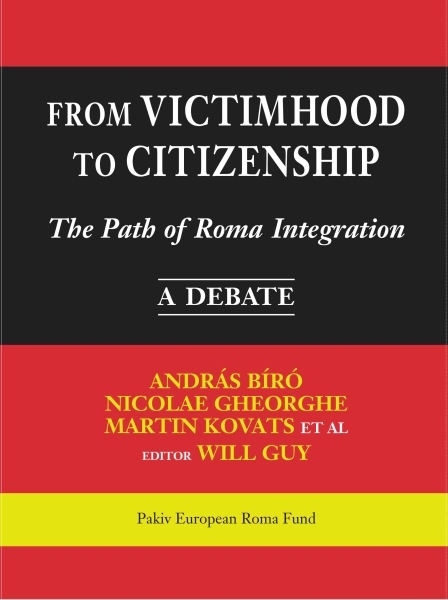
The main purpose of this whole endeavour has been to stimulate dialogue between activists, intellectuals and commentators. encouraging this dialogue has been in the forefront of the initiators’ minds from the very start. For this reason it was decided to extend the discussion beyond the initial debate between the authors of the three essays through the medium of print as far as possible. Consequently a number of activists and intellectuals were invited to offer a short response to the essays in preparation for fuller discussion at a follow-up workshop. brief extracts from these comments are included as text boxes accompanying the edited transcript of the workshop proceedings. Roma and non-roma with similar interests in developing the current level of discourse surrounding roma took part in a workshop held near bucharest in the autumn of 2011. The first day allowed participants to clarify points with the authors and engage in preliminary discussions, while the second day’s proceedings – which were recorded and subsequently transcribed – were devoted to more focused debate on what had been identified as key topics.
More...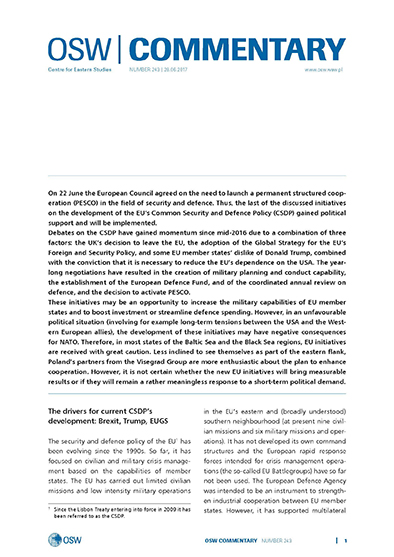
Keywords: Moldova; modernisation
There have been several significant changes on Moldova’s domestic political scene in the wake of the November 2014 parliamentary elections there. Negotiations lasted nearly two months and resulted in the formation of a minority coalition composed of two groupings: the Liberal-Democratic Party (PLDM) and the Democratic Party (PDM). New coalition received unofficial support from the Communist Party (PCRM), which had previously been considered an opposition party. Contrary to their initial announcements, PDLM and PDM did not admit the Liberal Party led by Mihai Ghimpu to power. Moreover, they blocked the nomination for prime minister of the incumbent, Iurie Leancă. Leancă has been perceived by many as an honest politician and a guarantor of reforms. This situation resulted in the political model present in Moldova since 2009 being preserved. In this model the state’s institutions are subordinated to two main oligarch politicians: Vlad Filat (the leader of PLDM) and Vlad Plahotniuc (a billionaire who de facto controls PDM).
More...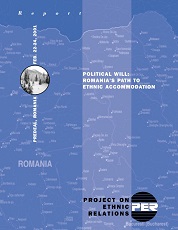
Keywords: Romanians and Hungarians in Romania; Transylvania;
This is a report of a discussion that would have been all but impossible to imagine ten years ago: Romanian and Hungarian political leaders from Romania sitting down to review and analyze their successful cooperation in building that country’s program for ethnic accord—and to consider what must be done to preserve that achievement. When the Project on Ethnic Relations began its work in Romania in 1991, it took almost a year to persuade Romanian officials and leaders of the ethnic Hungarian community just to gather around the same table, so deep was the mistrust. But once they did, it marked the beginning of a lengthy, and continuing, political process that makes Romania a uniquely successful example of what can be accomplished. The path was not, and is not, easy. It involved hard, often bitter, debates between Romanians and Hungarians, intensive political bargaining and tradeoffs, and many setbacks and disappointments. And yet a group of key leaders, although deeply loyal to their own communities, saw that compromises were necessary. They were willing to take political risks to realize their vision of interethnic harmony. Any interethnic accommodation is inherently fragile. It is easily upset by political opportunism, economic difficulties, or outside influences. So Romania’s accomplishments are neither complete nor permanent. The debate over interethnic arrangements will go on indefinitely—as it should in any democracy.
More...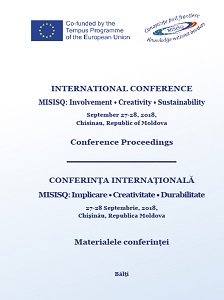
Keywords: bibliotecă; cultura informaţiei; experienţe;standarde de bibliotecă;
Cultura informaţiei utilizatorului modern tendinţe, perspective şi modele.
More...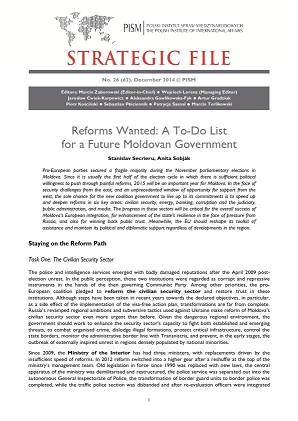
Keywords: Moldova; government reforms; security reforms; energy reforms; administration reforms; EU’s assistance;
Pro-European parties secured a fragile majority during the November parliamentary elections in Moldova. Since it is usually the first half of the election cycle in which there is sufficient political willingness to push through painful reforms, 2015 will be an important year for Moldova. In the face of security challenges from the east, and an unprecedented window of opportunity for support from the west, the sole chance for the new coalition government to live up to its commitments is to speed up and deepen reforms in six key areas: civilian security, energy, banking, corruption and the judiciary, public administration, and media. The progress in these sectors will be critical for the overall success of Moldova’s European integration, for enhancement of the state’s resilience in the face of pressure from Russia, and also for winning back public trust. Meanwhile, the EU should reshape its toolkit of assistance and maintain its political and diplomatic support regardless of developments in the region.
More...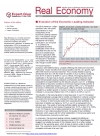
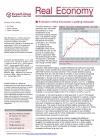
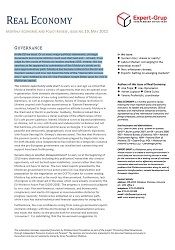
In the EU we trust. Or so many major political statements, strategic documents and crucial reforms could well start and end... at least, if we judge by the words of Moldovan leaders starting 2005. Indeed, the last year has so far appeared as culmination of the Moldova’s stride on its euro-approximation path: Moldova has become a Mecca for the EU and Western leaders and now can boast the title of the “democratic success story” aptly dubbed by the US Vice-President Joseph Biden upon his visit to Moldovan capital.
More...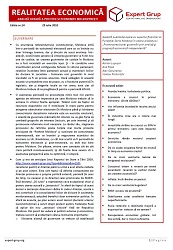
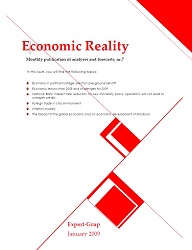
Political campaign began long before the Central Election Commission announced its official start. Party leaders and public officials started the rush in fall 2008, making generous social and economic promises to the public. However, at the moment the battle is given for the hesitant voters which according to social polls account for 40% of the population able to vote. Obviously, the ruling party possesses sufficient communication, administrative and budgetary tools to gain most of these votes. For this purpose the ruling party is considering many tactics,including the economic manipulation of the electoral behavior.
More...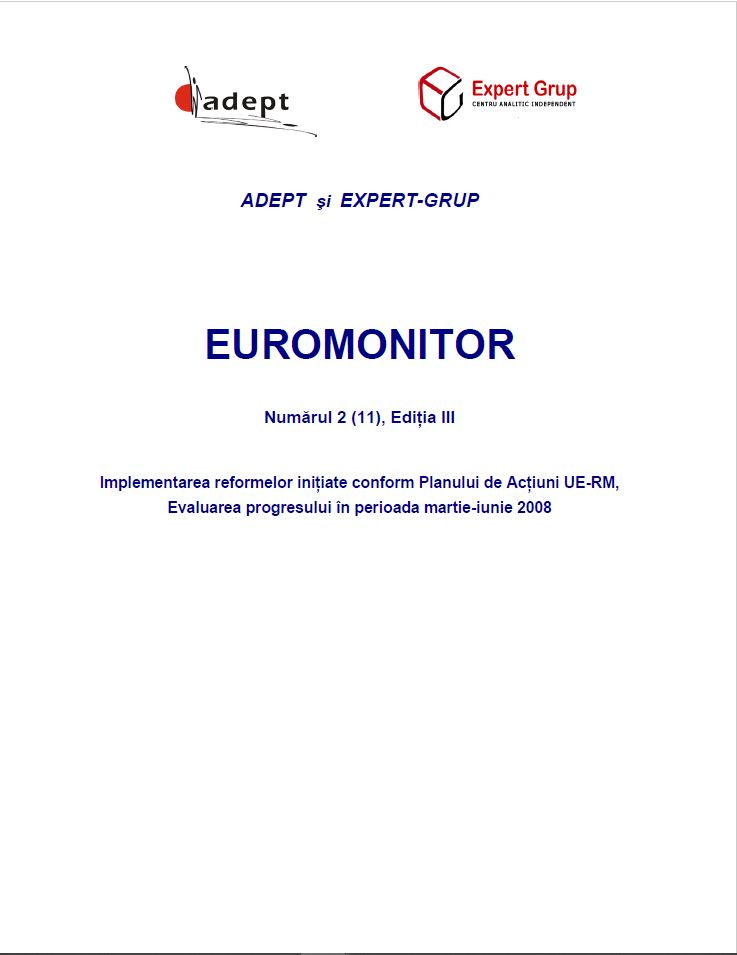
Keywords: Democratic institutions; Transnistria conflict; capacity of administration; juridical system; economic reforms; foreign trade; social development; human traffic; migration; border control;
The reports in the "Euromonitor" series aim at independent and objective monitoring of the implementation process of the Republic of Moldova - European Union Action Plan. The actions adopted and implemented by both signatories of the Plan will be monitored quarterly. The action plan is a complex document, structured in 7 chapters, which provides for the implementation of about 300 actions, some defined more or less precisely, others very ambiguous. Unable to monitor such a complex document, the authors of "Euromonitor" focused on priority actions, identified in the Action Plan itself.
More...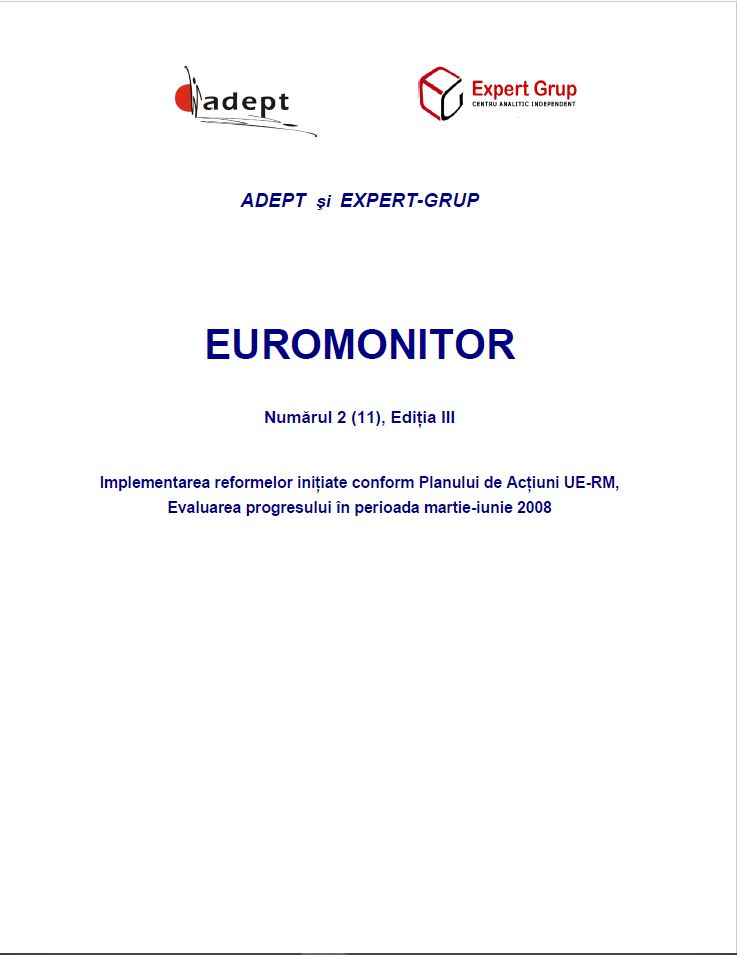
Keywords: Democratic institutions; Transnistria conflict; capacity of administration; juridical system; economic reforms; foreign trade; social development; human traffic; migration; border control;
The reports in the "Euromonitor" series aim at independent and objective monitoring of the implementation process of the Republic of Moldova - European Union Action Plan. The actions adopted and implemented by both signatories of the Plan will be monitored quarterly. The action plan is a complex document, structured in 7 chapters, which provides for the implementation of about 300 actions, some defined more or less precisely, others very ambiguous. Unable to monitor such a complex document, the authors of "Euromonitor" focused on priority actions, identified in the Action Plan itself.
More...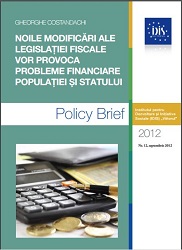
Keywords: tax-legislation in Moldova;
Moldova faces major tax problems. One of the problems of the tax system in the Republic of Moldova, which requires urgent solution, is tax evasion by individuals. This finding is brought from their own conclusions made in several studies and reports published by the Tax Service. Total annual tax losses on the full range of tax evasion are currently not estimated. The most widespread way of tax evasion is the intentional violation of tax law. This type of evasion can be committed consciously by the individual by concealing, from the tax service, income and wealth. In Moldova this type of evasion is used on the largest scale. The main factor is impunity…
More...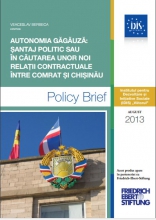
Keywords: federalism;
The special status of Gagauzia provides the autonomous territorial unit with large self-government competence. Thus, the Popular Assembly is the Gagauzia representative authority, which has been vested with the right to adopt normative acts within the limits of its competence. Also the population of this region elects for a 4-year period a Governor to whom all the Gagauzia public authorities are subordinated. Mention should be made that several important state positions in the territorial unit are nominated by the Popular Assembly, which is investing the local legislative body with an important role as far as the personnel policy of Gagauzia is concerned. Even if more than 18 years have passed since this political compromise between the centre and the Gagauz region was reached, periodically, conflict signs between the Chisinau and Comrat authorities emerge on different occasions. Over the last year though, the Gagauz political elite has expressed certain dissatisfaction which reminds about the events from the early ‘90s. A conflict is also made obvious between the most important institutions of the autonomy – the Popular Assembly and the Gagauzia Governor (Bashkan). The political fight within the autonomy has direct impact on the relations between the Comrat political elite and the central authorities. This interconnection complicates the situation in the autonomy as well as the relations between the region and the center. The modality of electing these two important institutions from Gagauzia- the Popular Assembly and the Governor (Bashkan) - is a permanent conflict element between the legislative and executive authorities in the situation when the majority in the local legislative and the Bashkan do not represent the same political formation. In other words, in contrast to the national legislation where the state president is elected by the Parliament, in the Administrative Territorial Unit (UTA) of Gagauzia, the members of the Popular Assembly and the Governor are elected directly by the population of the three rayons which make the Gagauz Autonomy.
More...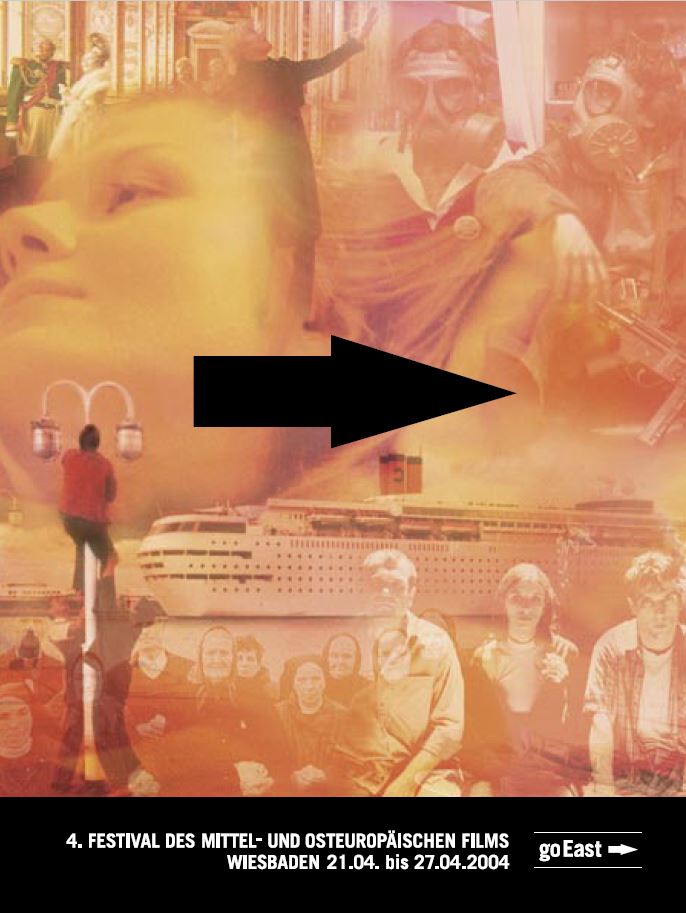
Keywords: festival;catalogue;film;
More...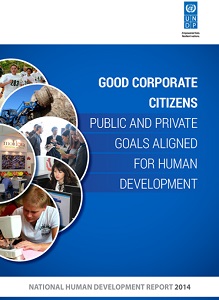
The 2014 National Human Development Report clearly shows that the role of the private sector in generating human development transcends that of a tax-payer and a creator of jobs, important though these contributions are. The report presents a thoroughly documented review of global and national experience to demonstrate how the private sector can play the role of catalyst for change by promoting new approaches, technologies, services and policy proposals. We trust these examples will inspire all of the many actors who have a part to play in this and help to drive further the efforts of the Moldovan business community to advance the modernization of the country. // The sustainable and inclusive development of Moldova in a way which benefits all people will occur only if Government, the private sector and society at large join efforts to achieve this goal. The 2014 report seeks to identify what can drive the private sector’s contributions to economic and social progress, what the obstacles are, and how an ecosystem conducive for stronger private–public development engagement can be attained. It provides a set of well-defined policy recommendations for all national actors, including central government and private companies, which we hope will continue the discussions started in the process of formulating the report.
More...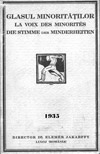
Keywords: N. Titulescu;
please find in the » Introduction.pdf « a complete Table of Content for all annual issues of 1935
More...